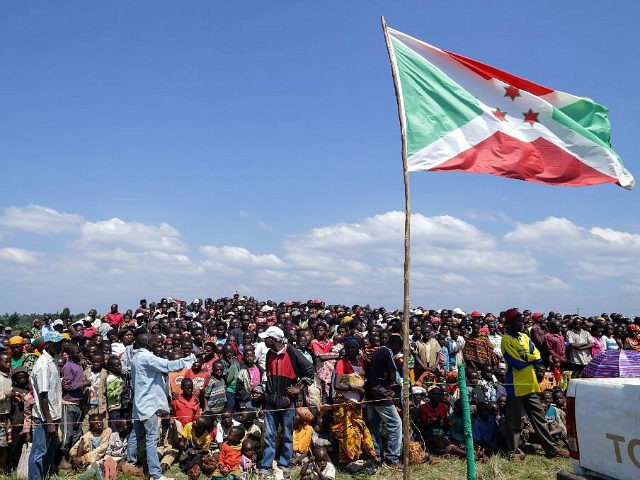The government of Burundi has forced the United Nations to close its local human rights office, the U.N. High Commissioner for Human Rights Michelle Bachelet announced on Tuesday.
The office in Burundi was opened in 1995 in the wake of shocking human rights violations perpetrated in the country following the murder of then-President Melchior Ndadaye. According to Reuters, the government claims that the progress they have made in terms of protecting human rights means the office is “no longer justified.”
“It is with deep regret that we have had to close our office in Burundi after a 23-year presence in the country,” Bachelet said. “Since the UN Human Rights Office in Burundi was established in 1995, for many years we worked with the Government on peacebuilding, security sector reform, justice sector reform and helped build institutional and civil society capacity on a whole host of human rights issues.”
As noted by the U.N.’s news agency, the office “helped ensure the incorporation of a human rights dimension to the implementation of the Arusha Agreement, which was the bedrock of the country’s stability for many years.”
However, human rights violations have become widespread since a surge in violence that began in 2015 after President Pierre Nkurunziza announced he would seek a third term, which opponents denounced as unconstitutional. Despite winning re-election, the move sparked mass demonstrations and a brutal security crackdown that left hundreds dead and forced around half a million people to flee the country.
“Unfortunately, many of these human rights gains have been seriously jeopardized since 2015,” Bachelet continued. “This meant that UN human rights staff were severely hampered in their ability to look into allegations of violations,” the High Commissioner said. Nonetheless, the UN Human Rights Office, in Burundi itself and at its Geneva headquarters, has continued to receive allegations of human rights violations and abuses.”
Bachelet also expressed her disappointment at the government’s lack of cooperation with the office, even threatening its employees and deporting foreign experts on charges of “spying.”
“Our reports on the human rights situation in Burundi have always been developed in a constructive spirit, intended to support the promotion and protection of human rights in the country,” she continued. “But I am disappointed by Burundi’s lack of cooperation in recent years with UN human rights mechanisms – which even went so far as to include threats to prosecute members of the independent international Commission of Inquiry established by the UN Human Rights Council.”
Follow Ben Kew on Facebook, Twitter at @ben_kew, or email him at bkew@breitbart.com.

COMMENTS
Please let us know if you're having issues with commenting.